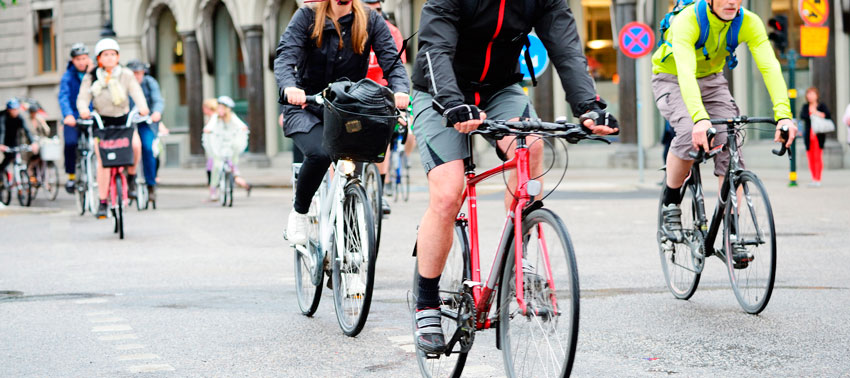
The project aims to meet the challenges of public health as well as fair, safe and climate- and environmentally adapted city traffic. Our idea consists of several solutions that enable and favour the emergence of travel patterns at the district level, in which cycling becomes a dominant feature. The idea of innovation includes, removing barriers to cycling due to motor vehicle traffic. It is based on new technology and organization together with municipal planning, regulations, and construction.
The project aims to meet the challenges of public health as well as fair, safe and climate- and environmentally adapted city traffic. Our idea consists of several solutions that enable and favour the emergence of travel patterns at the district level, in which cycling becomes a dominant feature. The idea of innovation includes, removing barriers to cycling due to motor vehicle traffic. It is based on new technology and organization together with municipal planning, regulations, and construction.
Current studies show that Sweden’s population is moving less and less, with an increased risk of physical and mental health. Associations, authorities, and companies invest in organized training, but large groups are not reached by this. Therefore, the potential that lies in cycling and walking to school, work should be used. Many people move in everyday life, and can do so for more, and longer parts of, travel within and between districts.
Our consortium consists of researchers, companies, municipalities, regions, and NGOs with the aim of gathering and developing knowledge, technology for effective action packages and support functions at district level, so that everyday cycling can meet the challenges of health, environment, and fair accessibility.
The potential to meet the challenges is great because short trips today are largely made by car and other motor-driven vehicles. A large proportion of these could, with support, of new technology be changed to active trips if thresholds were lowered and obstacles were removed. This can also provide great social benefits as, greater security and road safety, reduced climate impact, good land use and a more social and vibrant city. This is not unique to Sweden, but concepts can be exported to facing similar challenges.
The project Bikeable City is a project involving 17 different organisations, Abitago, Barkarby Science, Bidnerdonethat, Cykelfrämjandet, Generation PEP, IVL, Järfälla municipality, KTH, Linköping University, Living Cities, Martinsons, Moelven, Region Stockholm, Skapaskolan, Skälby för-och grundskola, Spacescape and Trivector.
The project is financed by Vinnova ![]()
and led by Trivector 




Christian Dymén
Konsult hållbara transporter, Fokusområdesansvarig Jämställdhet, jämlikhet och sociala investeringar
